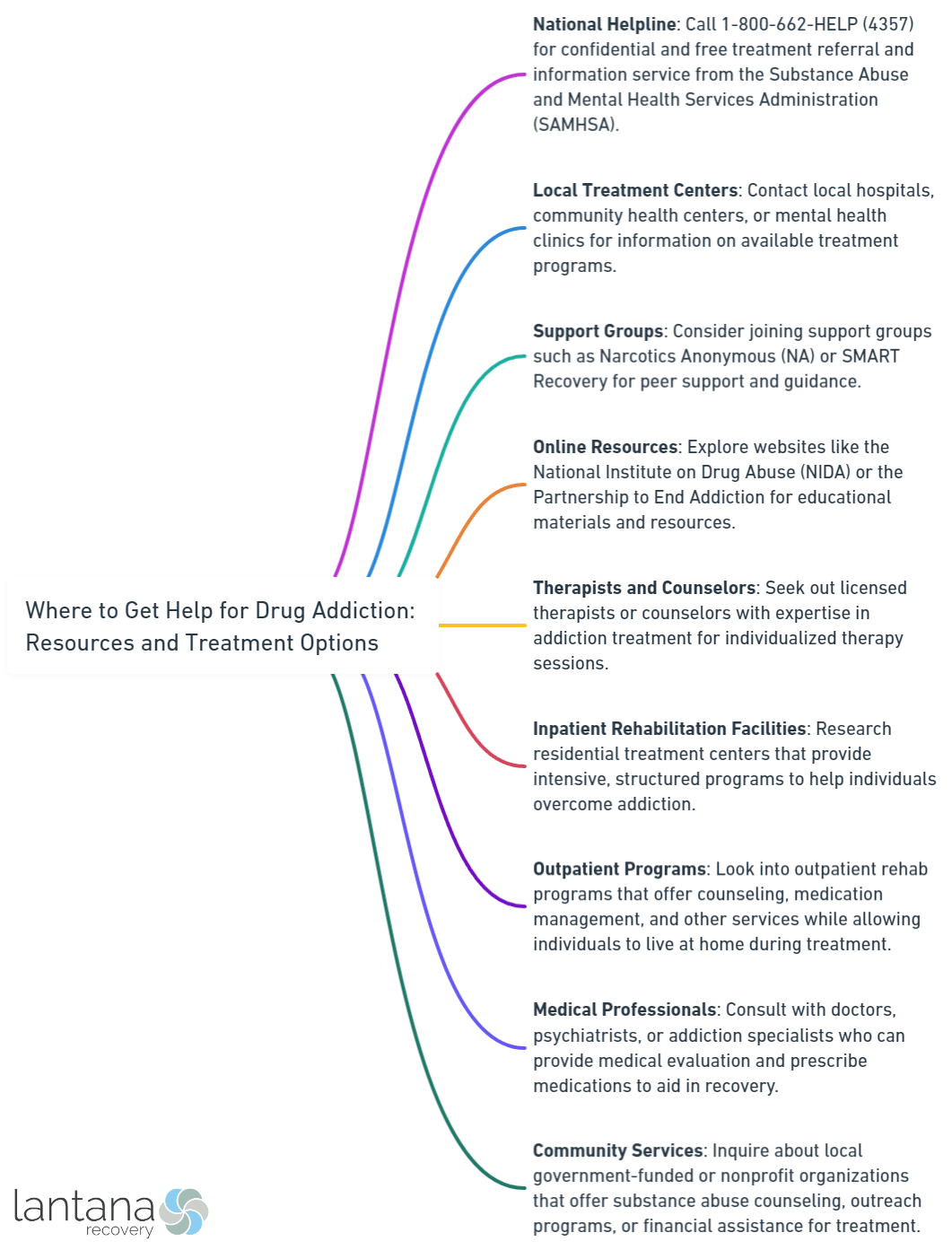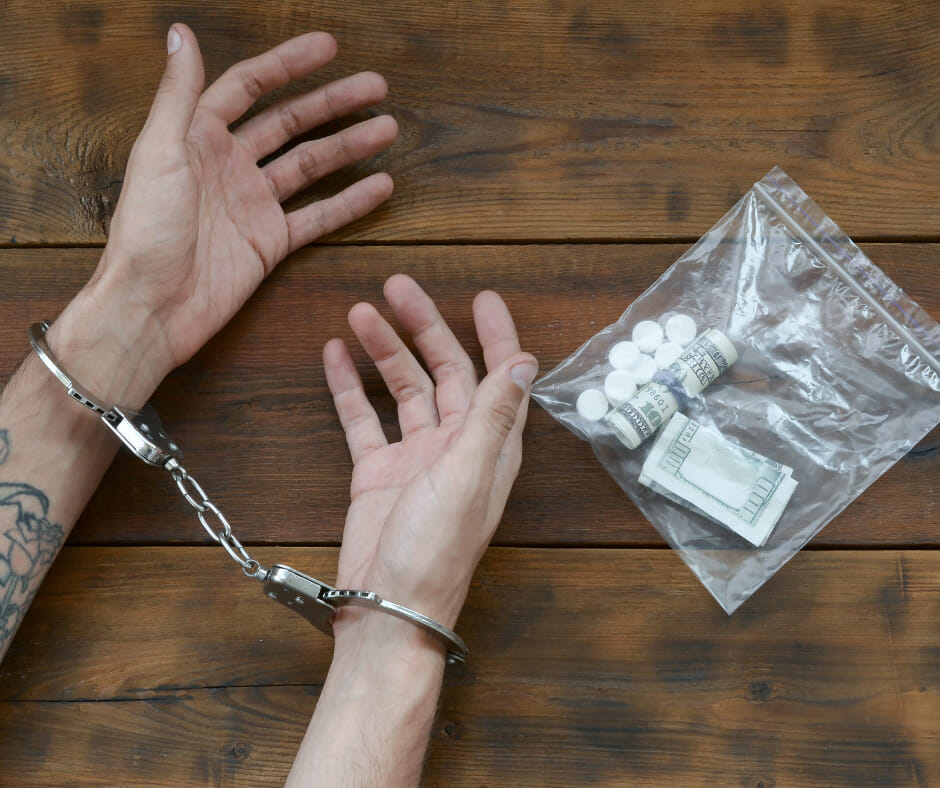Drug addiction is a complex and challenging issue that affects individuals from all walks of life. Understanding the nature of drug addiction and recognizing the need for help are crucial steps towards recovery. This article aims to provide resources and treatment options for those seeking assistance in overcoming drug addiction.
Recognizing the signs and symptoms of drug addiction is essential in identifying the need for intervention. Common indicators include changes in behavior, withdrawal from activities or relationships, increased tolerance, and physical or psychological dependence. These signs serve as a signal that professional help is necessary to address the addiction effectively.
When it comes to seeking help for drug addiction, there are several options available. Medical professionals, such as doctors and therapists, play a vital role in the assessment and treatment of addiction. Substance abuse treatment centers provide comprehensive programs and therapies tailored to individual needs.
Treatment options for drug addiction may include detoxification to remove the substance from the body, inpatient rehabilitation for intensive therapy and support, outpatient rehabilitation for flexible treatment while maintaining daily responsibilities, and medication-assisted treatment to aid in the recovery process.
Choosing the right treatment option requires considering factors such as the severity of addiction, individual needs, and personal preferences. It is essential to seek professional advice and explore different treatment programs to find the most suitable approach for long-term recovery.
Supporting recovery and preventing relapse are crucial aspects of the treatment process. Aftercare programs and services, such as counseling, vocational training, and sober living houses, provide ongoing support and guidance. Building a solid support system that includes family, friends, and support groups is vital in maintaining sobriety and preventing relapse.
By accessing the right resources and treatment options, individuals struggling with drug addiction can find the help and support needed to embark on a path of recovery and reclaim their lives.

Understanding Drug Addiction
Understanding drug addiction is crucial to effectively treat this chronic brain disease. Drug addiction, characterized by compulsive drug seeking and use despite negative consequences, can cause long-lasting changes in the brain’s structure and function. According to an article on Drug Addiction published in The New England Journal of Medicine by Jordi Camí, M.D., Ph.D., and Magí Farré, M.D., Ph.D. genetic factors, receptor-mediated processes, and anatomical structures all contribute to the development of addiction.
It is important to recognize that drug addiction is a medical condition, not a moral failing, and therefore requires proper treatment. Various types of drugs, such as opioids, stimulants, sedatives, and cannabis, can lead to addiction.
The impact of drug addiction can be severe, affecting physical health, mental well-being, relationships, and overall quality of life. Effective treatment should encompass both physical and psychological aspects, utilizing approaches such as medication-assisted treatment, behavioral therapies, counseling, support groups, and recovery programs.
With the appropriate support and dedication, recovery from addiction is achievable. By understanding addiction, we can create a society that offers the necessary resources and support to overcome this challenge.

Recognizing the Need for Help
Recognizing the need for help when it comes to drug addiction is a crucial first step towards recovery. In this section, we’ll discuss the signs and symptoms of drug addiction that can help you identify if you or someone you know is struggling with substance abuse. By understanding these indicators, we can better navigate the path to finding the right resources and treatment options for overcoming addiction. So, let’s dive in and shed light on the telltale signs that shouldn’t be ignored.
Signs and Symptoms of Drug Addiction
The signs and symptoms of drug addiction can vary depending on the substance being abused, but some common indicators are:
- Behavior changes: Sudden and unexplained changes in behavior, such as increased secrecy, irritability, agitation, and mood swings, can indicate drug addiction.
- Physical symptoms: Drug addiction can cause bloodshot eyes, dilated pupils, unexplained weight loss or gain, poor hygiene, and changes in sleep patterns.
- Psychological symptoms: Those struggling with drug addiction may experience intense cravings, difficulty concentrating, memory problems, and impaired decision-making.
- Social withdrawal: People addicted to drugs often withdraw from their usual social activities and may start spending time with a new group of friends involved in drug use.
- Financial difficulties: Drug addiction can lead to financial strain due to the need for more drugs, resulting in borrowing money, stealing, or selling personal belongings.
- Legal issues: Engaging in illegal activities, such as theft or drug possession, can clearly indicate drug addiction.
- Health problems: Chronic drug abuse can cause respiratory issues, cardiovascular complications, liver damage, and mental health disorders.
Recognizing these signs and symptoms is crucial in identifying drug addiction and seeking appropriate help for affected individuals. It is important to approach the issue with compassion and encourage them to seek professional assistance from medical professionals, substance abuse treatment centers, support groups, or drug addiction hotlines and helplines.

Where to Seek Help for Drug Addiction?
When it comes to seeking help for drug addiction, knowing where to turn is crucial. In this section, we’ll uncover the various avenues available to individuals seeking assistance. From medical professionals who provide expert guidance to substance abuse treatment centers offering comprehensive care, support groups that provide a sense of community, and hotlines and helplines ready to lend an empathetic ear, we’ll explore the range of options that can help pave the way to recovery.
Medical Professionals
When seeking help for drug addiction, it is important to consult with medical professionals who specialize in addiction treatment. These experts have the necessary knowledge and expertise to provide the appropriate care and support for individuals struggling with drug addiction.
Doctors play a crucial role in treating drug addiction. They can assess and diagnose co-occurring mental health disorders, as well as prescribe medication to manage withdrawal symptoms or address underlying mental health issues.
Psychiatrists are specialized doctors who focus on diagnosing, treating, and preventing mental health disorders. They have the ability to effectively manage medication for individuals with co-occurring substance use and mental health disorders.
Psychologists utilize therapy and counseling techniques to help individuals overcome drug addiction. They offer evidence-based therapies such as cognitive-behavioral therapy (CBT), motivational interviewing, and relapse prevention strategies.
Substance abuse counselors specialize in addiction counseling. They provide guidance, support, and education to individuals and their families, assisting them in navigating the challenges of addiction and recovery.
Pharmacists play a critical role in ensuring the safe and effective use of medications during addiction treatment. They offer valuable information about drug interactions, dosage instructions, and medication management. An article published in Current Psychiatry Reports on Barriers to Use of Pharmacotherapy for Addiction Disorders the writer Elizabeth M. Oliva and her team discusse different strategies to promote adoption of pharmacotherapy for addiction disorders should be modified to fit the needs of the practice, system, and individual patients.
By consulting with medical professionals who specialize in addiction treatment, individuals can receive comprehensive care tailored to their specific needs. These professionals are able to provide a combination of medications, therapy, counseling, and support to promote recovery and long-term sobriety.
Substance Abuse Treatment Centers
Substance Abuse Treatment Centers play a vital role in helping individuals overcome drug addiction. They provide specialized care and support for those struggling with substance abuse. Here are important aspects to consider when seeking treatment at a substance abuse treatment center:
1. Comprehensive Treatment: Treatment centers offer comprehensive programs that address both the physical and psychological aspects of addiction. These programs include detoxification, counseling, therapy sessions, and aftercare programs for long-term recovery.
2. Qualified Professionals: Centers have a team of doctors, nurses, therapists, and counselors who specialize in addiction treatment. They provide individualized care and support to each patient.
3. Evidence-Based Approaches: Centers utilize scientific research-backed methods and therapies to help individuals overcome addiction.
4. Supportive Environment: Treatment centers create a safe and structured setting for individuals to focus on their recovery without distractions or triggers.
5. Peer Support: Centers often have group therapy sessions or support groups where individuals can connect with others who are going through similar journeys. Peer support is invaluable in helping individuals feel understood and motivated during their recovery process.
Support Groups
Support groups play an essential role in assisting individuals who are struggling with drug addiction. These groups provide a secure environment where people can openly share their experiences and receive encouragement from others who have encountered similar challenges. There are several reasons why support groups are highly beneficial for individuals battling addiction.
Firstly, support groups facilitate peer connections, allowing individuals to connect with others who truly understand their struggles. This connection provides a sense of belonging and helps reduce feelings of isolation.
Secondly, emotional support is a crucial aspect of support groups. Members of these groups offer empathy, validation, and encouragement, which ultimately contributes to overall well-being and emotional resilience.
Additionally, shared experiences within these groups are invaluable. Listening to the stories of others on their addiction and recovery journey provides individuals with insight into their own struggles and gives them hope and inspiration for a successful recovery.
By promoting personal accountability, support groups motivate individuals to stay committed to their recovery goals. The emphasis on personal responsibility helps individuals regain control over their lives.
Practical advice and strategies for dealing with cravings, triggers, and other recovery-related challenges are constantly exchanged among support group participants. This practical guidance is highly beneficial for individuals as they navigate their recovery journey.
Attending support groups significantly increases the likelihood of maintaining long-term sobriety. Research has consistently shown that individuals who engage in support groups have higher rates of abstinence from drug use compared to those individuals who do not seek support.
It is an established fact that participating in support groups has a positive impact on relapse rates and treatment outcomes. A study on model of hope and change for alcohol and drug addiction published in the journal Australian Family Physician by David W Best and Dan I Lubman revealed that individuals recovering from drug addiction experienced reduced relapse rates, improved treatment outcomes, and enhanced overall well-being by participating in support groups.
Hotlines and Helplines
Hotlines and helplines are essential resources for individuals seeking help for drug addiction. These dedicated services provide immediate support, guidance, and valuable information. Here are some important points to consider:
- Availability: Hotlines and helplines are open 24/7, ensuring help is readily available at any time.
- Confidential and anonymous: These invaluable services prioritize confidentiality and offer complete anonymity to callers. This eliminates the fear of judgment or negative consequences.
- Trained professionals: Hotlines and helplines are staffed by knowledgeable professionals who specialize in supporting individuals struggling with drug addiction.
- Immediate assistance: Calling a hotline or helpline in times of crisis or when immediate help or information is needed can provide essential support.
- Referrals and resources: In addition to offering immediate assistance, hotlines and helplines can also provide valuable referrals to local treatment centers, support groups, and other resources necessary for recovery.
However, it is important to remember that hotlines and helplines are just one part of a comprehensive treatment plan for drug addiction. While they serve as a vital first step in seeking help, connecting individuals with the appropriate resources for their unique needs is equally important.
History has shown that hotlines and helplines play a significant role in supporting individuals battling drug addiction. Their availability and accessibility have positively impacted countless lives, leading to improved outcomes and successful recovery.

What Are the Treatment Options for Drug Addiction?
If you or someone you know is struggling with drug addiction, understanding the available treatment options is crucial. In this section, we’ll delve into the various avenues for recovery, including detoxification, inpatient rehabilitation, outpatient rehabilitation, and medication-assisted treatment. Each sub-section offers a unique approach to tackling addiction, providing individuals with tailored solutions and support on their path to recovery. Let’s explore these treatment options and the potential they hold for overcoming drug addiction.
Detoxification
Detoxification is the initial and vital stage in treating drug addiction. It helps people safely and comfortably withdraw from the substances they have been using.
During detoxification, drugs or toxins are eliminated from the body. This process aims to stabilize the individual both physically and mentally. Medical supervision is essential to address withdrawal symptoms and manage any complications that may arise.
The duration and intensity of detoxification vary depending on the type of substance used, length of use, and individual health factors. Medication-assisted treatment may be used to ease withdrawal symptoms and reduce cravings. For example, opioids addiction may be treated with methadone or buprenorphine, while alcohol addiction may be treated with naltrexone.
Detoxification alone is not sufficient to treat drug addiction. Comprehensive treatment programs are necessary to address the psychological and behavioral aspects of addiction.
If you or someone you know is considering detoxification, it is important to seek professional help from medical professionals or substance abuse treatment centers. They can assess your specific needs and provide personalized care to increase your chances of successful recovery.
Remember, detoxification is just the first step. Ongoing treatment and support are crucial for maintaining long-term sobriety.
Inpatient Rehabilitation
Inpatient rehabilitation, also known as residential rehabilitation, is a comprehensive and structured treatment program designed to address drug addiction. It offers a supportive and safe environment for individuals to embark on their journey of recovery. There are several key aspects to consider when it comes to inpatient rehabilitation.
Firstly, one of the primary features of inpatient rehabilitation is round-the-clock medical supervision. This ensures the safety and well-being of individuals during the detoxification process and throughout their stay in the program. The constant presence of medical professionals provides a sense of security and reassurance.
Another important aspect of inpatient rehabilitation is the residential setting. Participants reside in a dedicated facility, separate from their everyday environment. This separation helps remove triggers and temptations that may contribute to substance abuse, creating a protective and supportive space for recovery. According to science, “inpatients are three times more likely to complete treatment than outpatients.” (Inpatient and Outpatient Treatment Programs for Substance Use Disorder: A Review of Clinical Effectiveness and Guidelines, Ho, Adcock, 2017)
Inpatient programs also offer a variety of therapeutic interventions. These evidence-based therapies play a crucial role in the treatment process and include individual counseling, group therapy, family therapy, and behavioral therapies. These interventions help individuals address the underlying issues related to their addiction and develop coping strategies for a successful recovery.
Furthermore, peer support is a valuable element of inpatient rehabilitation. Being in a residential setting allows individuals to connect with others who are facing similar challenges. This communal atmosphere fosters a sense of community and encouragement, providing additional motivation and understanding.
Structure is a fundamental aspect of inpatient rehabilitation. The program follows a daily schedule that includes therapy sessions, educational workshops, leisure activities, and recreational opportunities. This structured environment helps individuals maintain focus, learn valuable life skills, and develop healthy habits and routines.
When considering inpatient rehabilitation, it is essential to take into account factors such as the severity of addiction, personal preferences, available resources, and the presence of co-occurring mental health conditions. Consulting with addiction specialists or treatment professionals can provide valuable guidance and support in making informed decisions.
If you or someone you know is struggling with drug addiction, reaching out for help is crucial. Inpatient rehabilitation can offer the necessary support, guidance, and treatment to overcome addiction and build a healthier, drug-free life. Remember, taking the first step towards recovery is a brave and transformative decision.
Outpatient Rehabilitation
Outpatient rehabilitation is a treatment program for drug addiction that allows individuals to receive treatment while living at home and attending therapy sessions on a schedule.
Outpatient rehabilitation offers a flexible treatment schedule, allowing individuals to continue with their daily responsibilities like work or school. This is beneficial for those who cannot commit to a full-time residential program.
During outpatient rehabilitation, individuals have access to counselors, therapists, and peers who can provide guidance and encouragement throughout their recovery journey.
Outpatient programs offer individual counseling, group therapy, and family therapy. These therapies help individuals address the underlying causes of their addiction, develop coping skills, and improve their overall well-being.
Compared to inpatient rehabilitation, outpatient programs are generally more cost-effective because they do not require accommodation or around-the-clock care. Moreover, if you are struggling to fund your treatment at a rehab, there are many ways you can cover the cost. For example, you can find a sponsor willing to invest in your healing, look for nonprofits or supportive services that advocate drug addiction treatment, or look for state funded addiction recovery programs.
Outpatient rehabilitation allows for a smoother transition from intensive treatment to independent living. Individuals can gradually integrate the skills and strategies learned into their everyday life, reducing the risk of relapse.
It is important to consider the individual’s specific needs and circumstances when determining the most appropriate treatment option. Factors such as severity of addiction, presence of co-occurring mental health disorders, and level of support at home should be taken into account.
Medication-Assisted Treatment
Medication-assisted treatment (MAT) is effective for drug addiction. It combines medications with counseling and behavioral therapies to improve treatment outcomes. Here are some important points to consider for medication-assisted treatment:
1. MAT reduces withdrawal symptoms and cravings, making it easier to stop using drugs. Commonly used medications include methadone, buprenorphine, and naltrexone.
2. MAT is used for opioid addiction, as well as alcohol and nicotine addiction. Discuss with a healthcare professional to determine if MAT is right for your specific addiction.
3. Medications used in MAT are safe and FDA-approved. They either block the effects of drugs or reduce withdrawal symptoms and cravings.
4. Counseling and behavioral therapies are essential with medication in MAT. These therapies address the root causes of addiction and develop coping skills for long-term recovery.
5. MAT is not a one-size-fits-all approach. The choice of medication and treatment duration depends on individual needs and goals. Work closely with a healthcare professional to determine dosage and duration.
6. Medication is not a standalone solution in addiction treatment. Combine it with counseling, support groups, and other resources for optimal results.
Remember, medication-assisted treatment is a valuable tool for overcoming addiction. If you or someone you know is struggling with drug addiction, reach out to a medical professional or substance abuse treatment center to discuss available options and find the right treatment program.

Choosing the Right Treatment Option
When it comes to finding the right treatment for drug addiction, making the right choice is crucial. In this section, we’ll dive into the factors you need to consider when selecting a treatment program. From the methods used to the level of individualized care, we’ll explore what each program offers and how it aligns with your specific needs. Finding the right treatment option can make all the difference on your journey to recovery.
Factors to Consider When Choosing a Treatment Program
When choosing a treatment program for drug addiction, there are several factors to consider. These factors can greatly influence the success of the recovery process.
Firstly, it is important to choose an accredited treatment program. Accreditation ensures that the program meets quality and effectiveness standards, providing assurance that the treatment will be of high quality and beneficial.
Secondly, look for a program that utilizes evidence-based approaches. These approaches have been proven to be effective in treating drug addiction. Examples of evidence-based approaches include cognitive-behavioral therapy, motivational interviewing, and medication-assisted treatment.
Additionally, it is crucial to select a program that offers individualized treatment plans. Everyone’s needs and goals are unique, so personalized plans can address these specific individual requirements.
Furthermore, consider the continuum of care provided by the program. It is essential that the program offers ongoing support during the transition to independent living and throughout the recovery journey. This ensures that individuals have the necessary support throughout their recovery process.
Including family members in the treatment process can also enhance the chances of successful recovery. Family involvement can provide additional support and understanding, which can greatly benefit the individual in their recovery journey.
Lastly, it is important to choose a program that offers aftercare and support services. These services, such as counseling, support groups, and relapse prevention programs, can provide ongoing support and help individuals maintain sobriety in the long term.
By considering these factors, individuals can make informed decisions and greatly increase their chances of achieving long-term recovery from drug addiction.

Supporting Recovery and Preventing Relapse
Supporting recovery and preventing relapse are crucial aspects of overcoming drug addiction. In this section, we’ll explore two key components: aftercare programs and services, and building a solid support system. Discover how these vital elements contribute to long-term sobriety, providing individuals with the necessary tools and assistance to maintain their recovery journey.
Aftercare Programs and Services
Aftercare programs and services are crucial for individuals recovering from drug addiction. These programs provide ongoing support and guidance to help maintain sobriety and prevent relapse. Here are some options for aftercare programs and services:
– Outpatient counseling: Individuals can continue receiving therapy and support while living at home. It includes individual counseling, group therapy, and family therapy. Outpatient counseling is a flexible option for those who have completed a higher level of care but still require support.
– Sober living homes: These are structured, drug-free environments where individuals in recovery can live and support each other. Sober living homes provide a safe and supportive community, often with rules and guidelines to ensure sobriety. They offer a transitional step between inpatient treatment and independent living.
– 12-step programs: Programs like Alcoholics Anonymous (AA) and Narcotics Anonymous (NA) offer a supportive community for individuals in recovery. They have regular meetings where individuals can share their experiences, receive support, and work through the 12-step program.
– Continued therapy: Many individuals benefit from ongoing individual counseling or therapy sessions to address underlying issues and develop coping strategies. Therapists can help individuals navigate challenges in their recovery journey.
Pro-tip: When choosing an aftercare program, consider your individual needs and preferences. Find a program that aligns with your goals and offers necessary support for sustained recovery. Remember, aftercare is an essential part of the recovery process and can greatly increase long-term success.
Building a Solid Support System
Building a solid support system is crucial for individuals recovering from drug addiction. A strong support system provides emotional, psychological, and practical assistance to help maintain sobriety and prevent relapse. Support groups, such as Narcotics Anonymous, Alcohol Anonymous, and Weed addiction support groups offer peer support and a sense of community for individuals on their recovery journey. Hotlines and helplines provide immediate assistance and guidance to those in crisis.
Here are key aspects to consider when building a support system:
1. Family and friends: Surround yourself with supportive and understanding family members and friends who provide encouragement, guidance, and a positive environment. They are a vital source of motivation and stability during recovery.
2. Support groups: Join groups like Narcotics Anonymous or Alcoholics Anonymous, offering a network of individuals who have faced similar challenges. These groups provide a safe space to share experiences, receive support, and learn from others in recovery.
3. Therapy or counseling: Engage in individual therapy or counseling to address underlying emotional issues related to addiction. Therapists assist in developing coping mechanisms, setting goals, and providing ongoing support.
4. Sober living communities: Consider residing in drug-free communities with peers in recovery. These communities provide structure, accountability, and opportunities to develop new friendships and skills for sober living.
5. Peer mentors or sponsors: Seek out mentors who have maintained long-term sobriety. They serve as role models, offering guidance and accountability during challenging times.
By building a solid support system that includes trusted individuals, support groups, therapy, and sober living communities, individuals in recovery enhance their chances of long-term success and well-being.
Frequently Asked Questions
Where can I find treatment facilities and providers for drug addiction?
You can find treatment facilities and providers for drug addiction through various resources such as the SAMHSA Treatment Locator, Blue Distinction Centers for Substance Use Treatment and Recovery, and the Substance Use Resource Center’s provider directory. These resources provide information on nationally accredited treatment facilities that offer evidence-based, patient-focused care.
What is withdrawal management and is it a treatment option for drug addiction?
Withdrawal management, also known as detoxification, is a treatment option for drug addiction that involves safely managing the physical symptoms of withdrawal when stopping substance use. It can take place in various settings such as outpatient care, inpatient care, or residential care, depending on the severity of addiction and individual needs.
How can SAMHSA’s National Helpline assist individuals and families dealing with drug addiction?
SAMHSA’s National Helpline, available at 1-800-662-HELP (4357), is a confidential and free service that provides treatment referrals and information for individuals and families dealing with mental and/or substance use disorders. It connects callers with local treatment facilities, support groups, and community-based organizations that can provide assistance and support.
What are some resources available for individuals seeking help with drug and alcohol abuse?
There are several resources available for individuals seeking help with drug and alcohol abuse. These include support groups such as Alcoholics Anonymous (A.A.), Al-Anon, Narcotics Anonymous (NA), NAR-Anon, and SMART Recovery. Additionally, the Substance Abuse and Mental Health Services Administration (SAMHSA) offers an online Treatment Locator and a National Helpline for treatment referrals and information.
Can individuals with health insurance access substance abuse treatment services?
Yes, individuals with health insurance can access substance abuse treatment services. It is recommended to contact their insurer for a list of participating healthcare providers and facilities. The SAMHSA National Helpline can also assist individuals in finding treatment programs that accept insurance or offer sliding fee scales for those who are underinsured or uninsured.
Is there a way to dispose of unused opioids safely?
Yes, it is important to properly dispose of unused opioids to prevent misuse. Many communities have take-back programs or designated collection sites where you can safely dispose of your unused medications. You can also check with your local pharmacy or law enforcement agency for guidance on safe disposal methods in your area.









